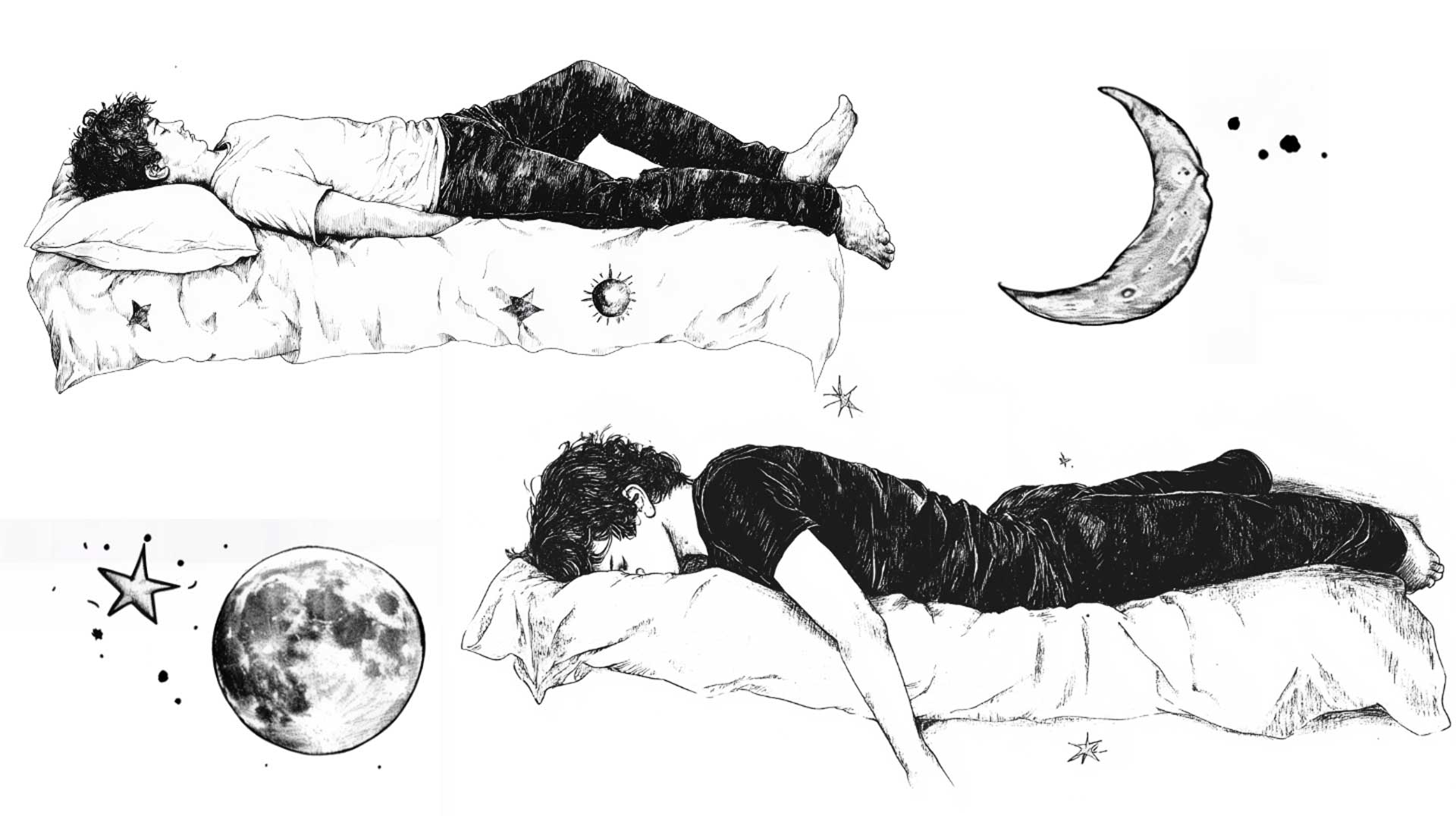When we think about getting a good night's sleep, we often focus on the number of hours we sleep. While sleep duration is important, the quality of sleep and the time spent in different sleep stages are equally crucial for feeling rested and refreshed.
It’s not just about how long you sleep, but how well you sleep. Sleep quality means cycling smoothly through the four stages of sleep multiple times each night. Cycling through each sleep phase multiple times is essential for waking up feeling refreshed and for maintaining overall health.
In this article, we will cover:
- What are sleep cycles and sleep stages.
- The four sleep stages in detail.
- Why the sleep stages matter.
- Practical Tips to improve your sleep cycle.
Sleep Cycles and Stages, what's the difference?
Sleep isn’t a uniform process. A sleep cycle is a series of stages that your brain and body go through several times each night while you sleep. Each cycle consists of four sleep stages: three non-REM (NREM) stages and one REM (rapid eye movement) stage. Depending on the stage you’re in your brain waves, heart rate and other factors of your body behave differently.
Are All Sleep Cycles the Same?
Not all sleep cycles are created equal. The duration and composition of each sleep cycle can vary over the course of the night. Typically, the first sleep cycle is the shortest, lasting from 70 to 100 minutes. Subsequent cycles tend to be longer, generally ranging from 90 to 120 minutes.
Variations in Sleep Cycle Length
The length of each sleep cycle is influenced by different factors like age, recent sleep patterns, alcohol consumption and many more. For instance, younger individuals often have longer cycles due to a greater proportion of deep sleep, while older adults may experience shorter cycles with less time spent in deep sleep stages.
Changes in Sleep Stage Composition
The proportion of time spent in each sleep stage also evolves throughout the night. During the initial cycles, you spend more time in deep sleep. This is crucial for physical restoration and recovery. As the night progresses, the duration of deep sleep decreases, and the time spent in REM sleep increases.
The Four Sleep Stages
We know about four stages of sleep: three non-REM (NREM) stages and one REM (rapid eye movement) stage. Each stage has unique characteristics and plays a vital role in your sleep health.
Stage 1 (N1): Light Sleep (5%)
Stage 1 is the lightest sleep stage and marks the transition from wakefulness to sleep. This stage typically lasts just 1 to 7 minutes. During N1, your body and brain start to slow down. Your muscles relax, your breathing becomes more regular, and your eye movements slow.
Brain activity also decreases, your brain waves become slower. You might experience sudden muscle jerks or the sensation of falling, which can briefly wake you up. Because this stage is so light, you can easy wake up due to noises or other disturbances. If undisturbed, you quickly move into Stage 2.
Stage 2 (N2): Deeper Light Sleep (45%)
During Stage 2 sleep, you begin to experience a deeper level of relaxation. This stage lasts about 10 to 25 minutes per cycle and gets longer with every cycle. During this time, your body temperature drops, your muscles relax more, and your heart rate and breathing slow down.
Your brain shows some unique activity patterns in Stage 2. One of these patterns is called sleep spindles, those are quick, rhythmic bursts of brain activity. These spindles help protect you from waking up due to noises or other disturbances.
Another pattern is called K-complexes, which are large waves of brain activity that help with memory and responding to external sounds. During sleep, your brain processes and organizes information from the day, transferring it from short-term to long-term memory. K-complexes help facilitate this transfer, ensuring that important information is retained and integrated into your existing knowledge base.
Stage 2 is very important because it makes up about half of your total sleep time. This stage is essential for getting a good night’s rest and feeling refreshed when you wake up.
Stage 3 (N3): Deep Sleep (25%)
Stage 3, also known as deep sleep, delta sleep, or slow-wave sleep (SWS), is the most restorative stage of sleep. It typically lasts 20 to 40 minutes in the first sleep cycle and gets shorter as the night progresses.
During N3 sleep, your body is at its most relaxed state: muscle tone, pulse, and breathing rate decrease significantly. The brain waves slow down even further. Now slow delta waves are getting produced, those are the slowest and highest amplitude brain waves observed during sleep. This stage is vital for physical recovery, immune function, and overall health. Growth hormone is released, tissue repair occurs, and energy is restored.
Deep sleep is also important for cognitive functions such as memory consolidation, problem-solving, and insight. It is crucial to prevent disturbances during this phase of your sleep. This can result in grogginess and impaired cognitive function upon waking. Fortunately, in this stage you are the most difficult to wake up.
REM Sleep: Dream Stage (25%)
Rapid Eye Movement (REM) sleep is the stage where most vivid dreaming occurs and is crucial for cognitive functions. The first REM period usually begins about 90 minutes after falling asleep and lasts only a few minutes. But each subsequent REM period grows longer, with the final one lasting up to an hour. During REM sleep, brain activity increases to levels similar to when you’re awake, which is why this stage is also called paradoxical sleep.
Your eyes move rapidly in different directions, but the rest of your body experiences temporary paralysis, preventing you from acting out your dreams. This paralysis, does not affect your breathing or eye muscles. REM sleep is essential for memory consolidation, learning, and emotional regulation. It’s also the stage where the most intense and vivid dreams occur, which can be linked to the brain’s high activity levels during this period. If you wake up during REM sleep, you can best remember your dreams.
Why Sleep Stages Matter
Every stage of sleep helps your brain and body recover and grow. Missing out on deep sleep or REM sleep can significantly affect your thinking, emotions, and physical health. Sleep disorders like sleep apnea and insomnia can disrupt your sleep cycles, preventing you from reaching these critical stages.
Tips for a Healthier Sleep Cycle
While you can’t control your sleep cycle entirely, you can improve your sleep quality with good sleep hygiene. Here are some tips:
- Maintain a consistent sleep schedule.
- Get natural daylight exposure during the day.
- Avoid alcohol and caffeine before bedtime.
- Create a comfortable sleep environment.
Summary
- Importance of Sleep Stages: Each sleep stage has their own assignment, and is therefore important. With deep sleep aiding in physical recovery and REM sleep supporting cognitive functions for example.
- Sleep Cycles: A typical night involves several sleep cycles. Each lasting about 90 minutes, with the first cycle being shorter and subsequent cycles longer.
- Deep Sleep: Essential for physical recovery, immune system strength, and energy restoration. Your body is at its most relaxed state, breathing pulse and speed of brain waves decrease significantly
- REM Sleep: Crucial for memory consolidation, learning, and emotional health. Your brain is highly active, and you experience vivid dreams, while your body experiences temporary paralysis to prevent movement.
Stage 1: Light Sleep | Stage 2: Deeper Light Sleep | Stage 3: Deep Sleep | REM Sleep | |
Brain Activity | Theta waves (fast) | Theta waves with sleep spindles and K-complexes (slower) | Delta waves (very slow) | Beta waves (fast) |
Physiological Changes | Heart rate and breathing slow down, muscles relax | Body temperature drops, heart rate and breathing slow further | Brain waves slow down, heart rate and breathing are at their low | Rapid eye movements, increased heart rate and breathing, temporary muscle paralysis |
Depth of Sleep | Very light, easily awakened | Light to moderate, harder to wake up | Very deep, difficult to wake up | Variable, difficult to wake up depending on REM cycle stage |



